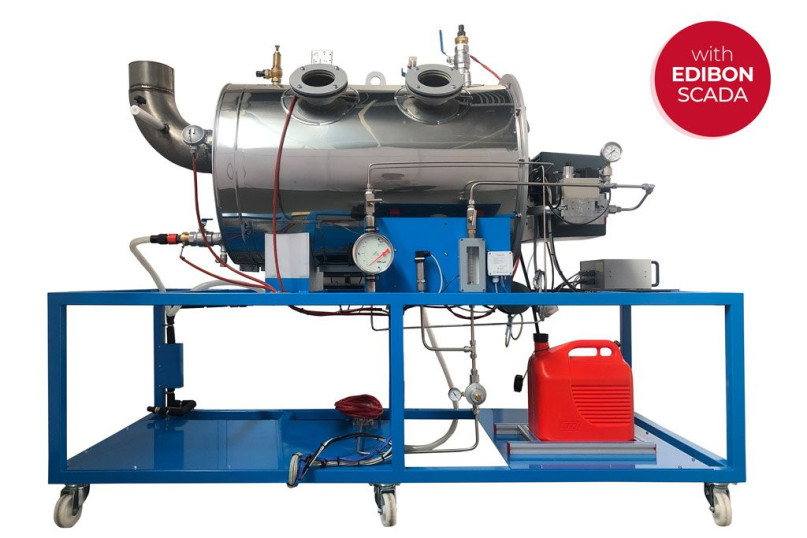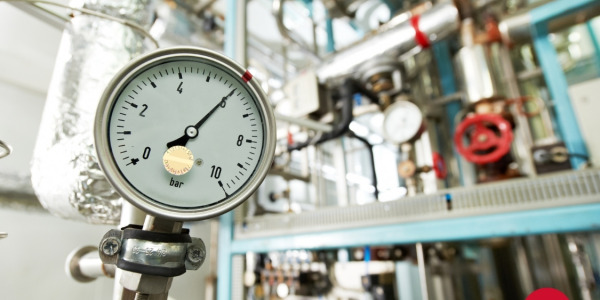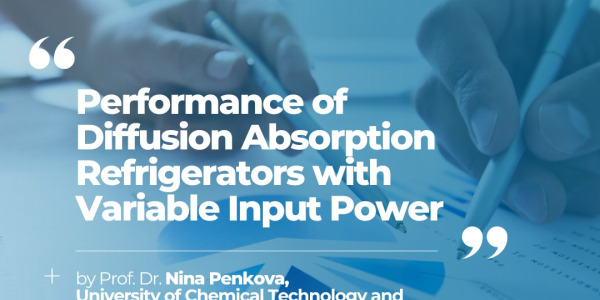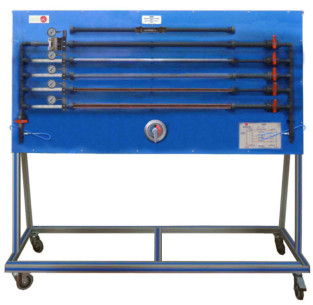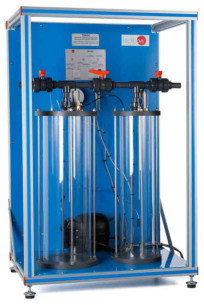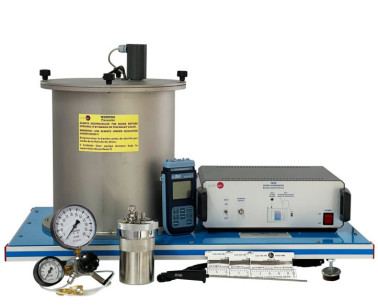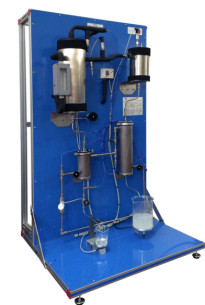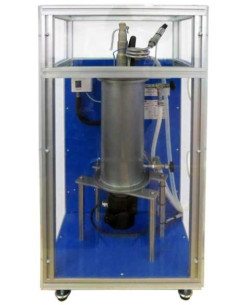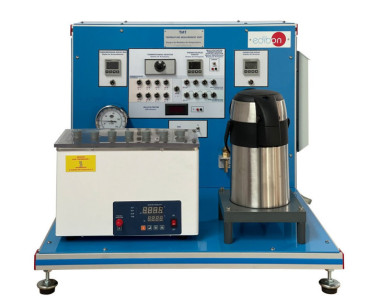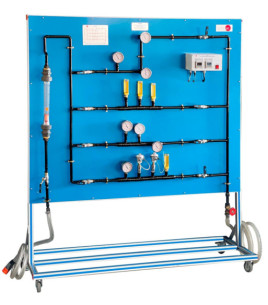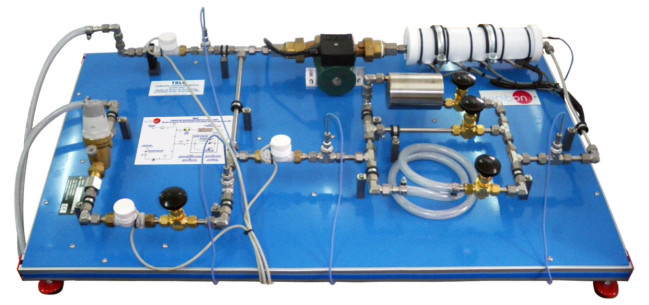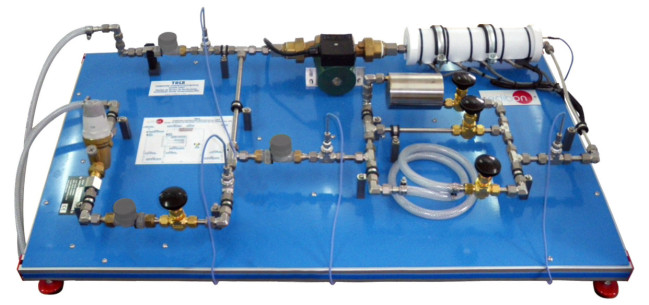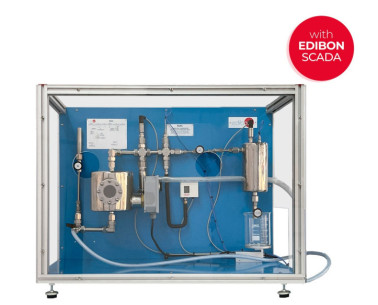TVCC Laborgerät für Verbrennungsprozesse, computergesteuert (PC)
INNOVATIVE SYSTEME
The Computer Controlled Combustion Laboratory Unit, "TVCC", unit is mounted on a metallic frame that enables safe access to the equipment and an easy handling and access to the burner, combustion chamber and all the accessories and control panels.
Erweiterungen
Laboratorien
ÄHNLICHE NEUIGKEITEN
ALLGEMEINE BESCHREIBUNG
The Computer Controlled Combustion Laboratory Unit, "TVCC", unit is mounted on a metallic frame that enables safe access to the equipment and an easy handling and access to the burner, combustion chamber and all the accessories and control panels.
The burner starts the combustion with fuel oil (diesel or gas oil) or with gas (natural gas or LPG). The gas (either from an LPG cylinder or from the premises’ supply) and fuel oil stored in two tanks provided with the unit are fed to the burner through suitable ducts and valves.
Both lines include their corresponding filter and the appropriate safety measures. Prior to the combustion start, the burner begins with an air purge, later on it burns the corresponding fuel and, automatically, it is set to a safe working conditions.
The burner has an integrated fan that provides the air required for the combustion, a flame detection sensor and an ignition controller. This fan has a differential pressure sensor to measure the air flow provided, a thermocouple to determine its temperature and a regulator for the air flow to be introduced in the burner.
The flame burns inside a stainless steel combustion chamber cooled with water. Such chamber has five observation points (of 100 mm) at their sides which allow to observe the flame.
The unit also includes a manual digital analyzer for the combustion fumes. It allows to determine the composition of such gases, the air excess, content in O2, CO, CO2 and CO/CO2 ratio.
This way, students can study the effect of the fuel/air ratio in the characteristics of the flame, in the efficiency of the combustion, in the constituents of the combustion fumes, etc., as well as the influence of all these aspects in the use of different fuels.
This Computer Controlled Unit is supplied with the EDIBON Computer Control System (SCADA), and includes: The unit itself + a Control Interface Box + a Data Acquisition Board + Computer Control, Data Acquisition and Data Management Software Packages, for controlling the process and all parameters involved in the process.
ÜBUNGEN UND GEFÜHRTE PRAKTIKEN
GEFÜHRTE PRAKTISCHE ÜBUNGEN IM HANDBUCH ENTHALTEN
- Study of the combustion process and the burner operation.
- Familiarisation of the adjustment and operation of an oil or gas burner.
- Effect of the air/fuel ratio both in the efficiency of the combustion and in the measuring of the combustion gases components and in the temperature.
- Effect of the air/fuel ratio on energy balance.
- Effect of the air/fuel ratio on heat transfer.
- Effect of the flame radiation on heat transfer and observed temperature.
- Comparison of flue gas analysis with theoretical predictions.
- Comparison of the performance of different fuels.
- Assessment of a burner, including:
- Flame stability.
- Flame shape.
- Flame radiation.
- Firing rate.
- Turndown range.
- Smoke emission.
- Comparison between a gas burner and a gas-oil burner.
- Sensors calibration.
MEHR PRAKTISCHE ÜBUNGEN FÜR DAS GERÄT
- Many students view results simultaneously. To view all results in real time in the classroom by means of a projector or an electronic whiteboard.
- Open Control, Multicontrol and Real Time Control. This unit allows intrinsically and/or extrinsically to change the span, gains, proportional, integral, derivative parameters, etc, in real time.
- The Computer Control System with SCADA and PID Control allow a real industrial simulation.
- This unit is totally safe as uses mechanical, electrical and electronic, and software safety devices.
- This unit can be used for doing applied research.
- This unit can be used for giving training courses to Industries even to other Technical Education Institutions.
- Control of the TVCC unit process through the control interface box without the computer.
- Visualization of all the sensors values used in the TVCC unit process.
- Several other exercises can be done and designed by the user.
ERGÄNZENDE AUSRÜSTUNG
Gerät für Gasexpansionsprozesse eines idealen Gases, computergesteuert (PC)
Kalorimetrische Pumpe
Drossel- und Trennkalorimeter, computergesteuert (PC)
Marcet-Kesselgerät, computergesteuert (PC)
Gerät zur Temperaturmessung, computergesteuert (PC)
Gerät zur Temperaturmessung
Trainingsgerät für Temperaturmessungen
Gerät für die Untersuchung der Gasgesetze (Boyle und Gay-Lussac), computergesteuert (PC)
Gerät für Recycling-Schleifen, computergesteuert (PC)
Gerät für Recycling-Schleifen
Gerät für Sättigungsdruck, computergesteuert (PC)
QUALITÄT
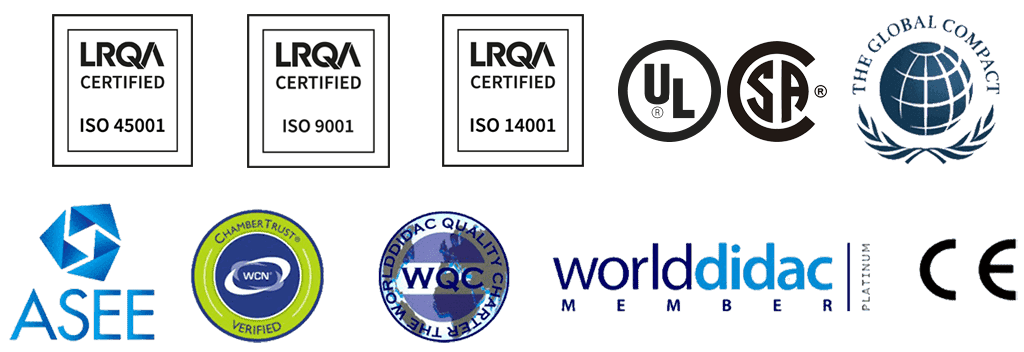
KUNDENDIENST

 Cookie-Präferenzen
Cookie-Präferenzen

